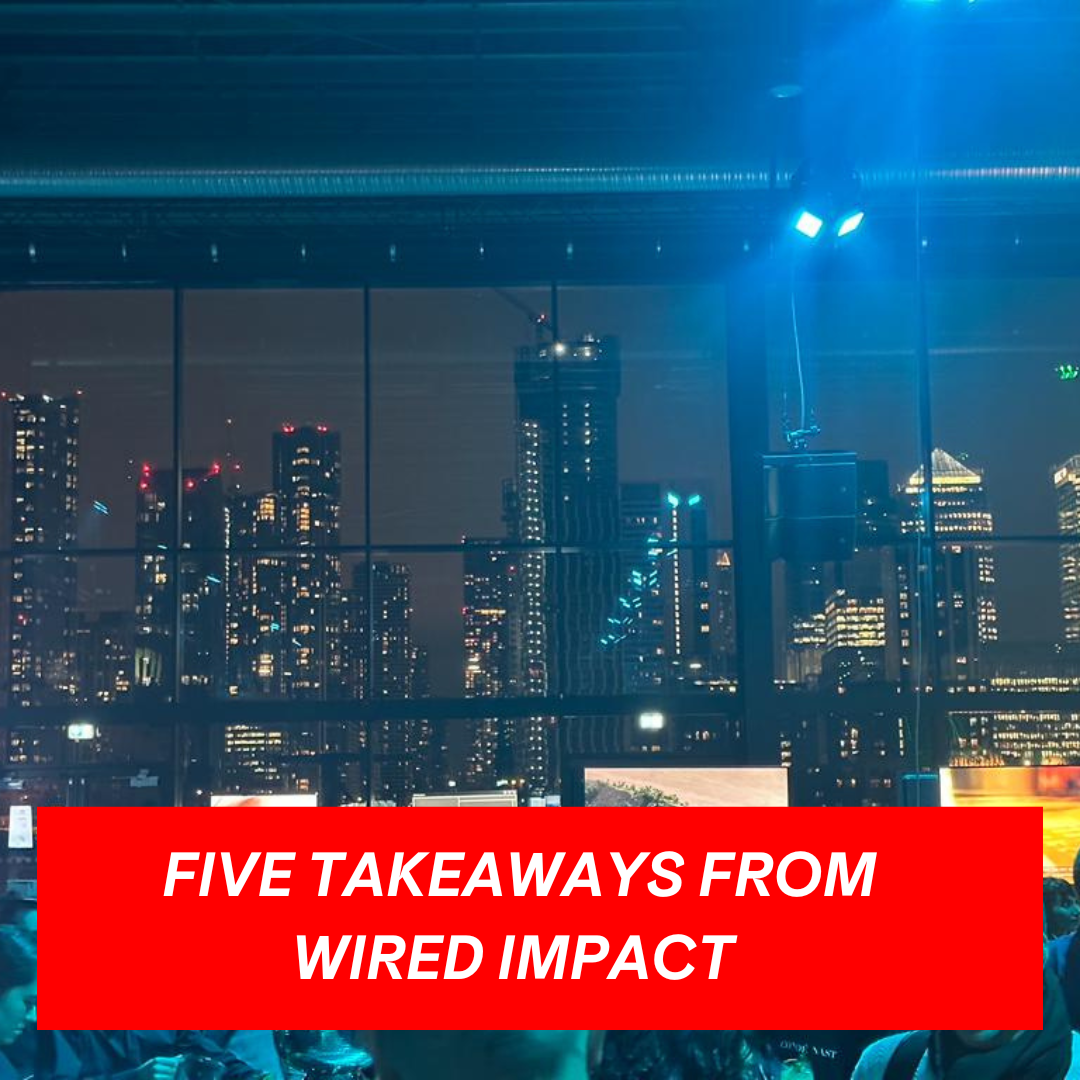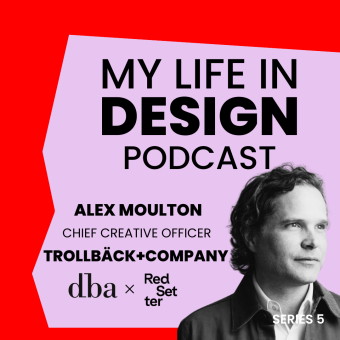Our thinking
Five takeaways from Wired Impact
Alex Blyth
Managing Partner
Last week a few hundred people gathered at Magazine on the North Greenwich Peninsula for a day of talks on sustainability.
I help Red Setter’s clients get speaking gigs at conferences, and so I go to a lot of conferences and I can genuinely say I’ve never been at an event that had so many people in the coffee breaks saying things like: “What did we just hear? That idea was incredible – I’ve never heard anything like it. That could actually change everything couldn’t it?”
Here then are five of the top takeaways.
1. We should be dissatisfied but optimistic
Dr Hannah Ritchie set the tone for the day perfectly by pointing out the successes we’ve had on tacking climate change.
We closed the hole on the ozone layer.
We stopped acid rain.
We’ve seen a vast improvement in air quality.
Our carbon footprints are lower than our grandparents’.
Renewable energy prices have plummeted in the past decade.
The Oxford University researcher and author of ‘It’s Not the End of the World’ argued that it’s easy to look at the enormity of the task still facing us and feel overwhelmed or depressed. Yet these past successes should give us confidence that we can make a difference.
2. We should be immensely proud of London’s ULEZ
London Mayor Sadiq Khan ran the London marathon in 2015 (mainly to beat Ed Balls, he joked), and developed breathing difficulties as a result. It brought home to him the issues of the city’s air pollution.
When in 2010 nine-year old Rosamund Kissi-Edwards was judged to have been the first person to die of air pollution, it became clear to him – and many others – that action was necessary. He set out to enlarge London’s Ultra Low Emissions Zone (ULEZ).
Today, ULEZ is the largest clean air zone in the world, encompassing nine million people. And it works: harmful nitrogen dioxide concentrations are estimated to be 21 per cent lower in inner London and 46 per cent lower in central London as a direct result of ULEZ.
Asked about the criticism of ULEZ during the recent Uxbridge by-election, Khan replied that there are two types of politicians: those who address your fears, and those who play on your fears; people have genuine concerns about the impact of ULEZ expansion on their lives, and he aims to address those fears, not play on them.
3. Elephants need salaries
Renowned conservationist Ian Redmond, OBE, asked us how we value nature.
Is it as entertainment? After all tourists pay $1500 for an hour watching gorillas in the wild. We all watch documentaries showing it through our screens.
Or is it as guilt-induced charity?
He made the startling case for a different approach. Taking elephants, he showed the vital role they play in spreading seeds, that become plants that contribute to global climate conditions. Our economy is dependent on those elephants doing their jobs as seed spreaders. He cited an IMF economist who has estimated the value of that over an elephant’s lifetime at $1.7m.
He is building a case for this valuation to be placed on all the plants and animals in an area so that when a company wants to mine it, they need to incorporate that price. It would be a radical shift in thinking from viewing minerals as highly valuable and plants and animals as effectively worthless.
4. Edible packaging made from seaweed is here and in use
Pierre Paslier, Co-Founder of Notpla, told us that the first plastic was invented just up the road in Hackney Wick, and more than 150 years later he’s invented edible packaging made from seaweed.
He ate it on stage to prove the point, before showing us some of its uses in delivery containers (replacing harmful microplastics), energy gel pods (used at a plastic-free station at the London Marathon) as well as in toothpaste, beer and agriculture.
It’s the future.
5. Direct air capture, not offsetting, is how we will decarbonise our air
According to Dr Gabrielle Walker, Chief Scientist at Cur8, the amount of heat we put into the atmosphere is equivalent to four Hiroshimas every second.
Offsetting is not the answer. We simply can’t plant enough trees to capture all the carbon we emit.
We need to accelerate the reduction of carbon emissions, and vastly increase the rate at which we’re direct extracting it from our atmosphere.
Direct air capture is the way to do that, argued Walker. Direct air capture plants are new, and for now costly, but they suck carbon directly from the air, turning it into sold carbon tubes that can be put underground to slowly become rock.
Companies that want an alternative to offsetting are increasingly looking at this option, and if it achieves scale it truly could be a transformative solution to decarbonising our atmosphere.
There are no easy solutions the climate crisis we’ve created, but as night fell and the lights of Canary Wharf blinked on across the Thames, a day filled with ideas left us feeling hopeful that science may be able to provide some answers to the challenges ahead.



